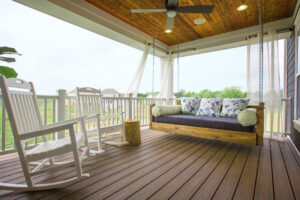In addition to providing respite from the summer heat, a decent house air conditioner also controls humidity during the monsoon and heats the home during the winter. Knowing how to select the best air conditioner for your home can help you make an informed selection given the abundance of possibilities. It’s not necessary for air conditioners with comparable capabilities to use the same amount of power. The SEER (Seasonal Energy Efficient Ratio) rating of some air conditioners is consequently higher than that of others. Unfortunately, the cost of these air conditioners is likewise high. In these situations, you must determine whether buying the more expensive but more effective model is the best course of action.
To profit, make it a point to purchase a split air conditioner or window air conditioner this summer. The ideal time to buy an air conditioner for your house is right now. Before you go shopping, take a short look at the suggestions you should have in mind while selecting the best air conditioner for your house.
1. Ability
The size of the room or residence and the maximum cooling capacity decide the size of the air conditioner that you want to purchase. Your air conditioner must be the right size to operate effectively and last longer. The size, location, and population of a room are just a few of the factors that affect an air conditioner’s capability. Determine how much tonnage or BTU your home will require before you purchase an air conditioner.
The amount of heat needed to melt one tonne of ice in 24 hours is equal to one tonne, which is how much cooling power an air conditioning system has. The right air conditioner must have the right tonnage for the size of your space. For rooms less than 130 square feet in size, a 1-ton air conditioner is more than sufficient. On the other hand, a room of about 185 square feet is better suited for 1.5-ton Mitsubishi Heavy Industries Air Conditioners.
2. Energy Effectiveness
Energy efficiency is one of the most crucial things to take into account when making a selection. We would want an air conditioner that offers the most cooling while consuming the least amount of energy given the high cost of power. An air conditioner’s energy efficiency is measured using its star rating, which is established by the Bureau of Energy Efficiency (BEE). The energy efficiency is greater the higher the star rating. As a result, a 5-star AC will consume the least energy when compared to a 1-star AC. On the other hand, compared to conventional air conditioners, inverter series air conditioners offer more efficiency at lower star ratings.
3. Budget
Knowing your budget is essential because an air conditioner is a sizable investment in your home. How long do you intend to stay in your current residence? Are you the property’s owner? Ask yourself these concerns since installing a ducted system is useless if you intend to move soon. Before making your final choice, take into account all financial factors because an air conditioner is a precious possession.
4. Room Dimensions
The capacity and size of the air conditioner should match the dimensions of your space. Select a cooling capacity for your air conditioner that is appropriate for the size of your space. If it is larger, it won’t be able to provide adequate dehumidification; if it is smaller, it will use more energy; and if it has a high cooling capacity relative to its size, it will turn on and off too frequently.
5. Being Exposed To The Sun Directly
A key element is the amount of direct sunlight that reaches the area that needs to be cooled. Direct sunlight increases the amount of cooling needed in a room compared to indirect sunlight. The machine’s tonnage could only be used in locations shielded from direct sunshine.
6. Item Price
Even though modern air conditioners are loaded with capabilities, one should choose one that has technology that is adapted to the user’s requirements. It’s imperative to remain with a reputable brand that provides all the required features at an affordable price.





















